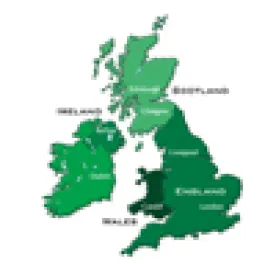On 2 July, the Administrative Court ruled in the Food Standard Agency’s (FSA’s) favour over a decision by an FSA veterinary contractor based at a slaughterhouse (following an inspection by a Meat Hygiene Inspector) to declare a beef carcase as unfit for human consumption [i]. The Association of Independent Meat Suppliers (AIMs) together with the affected meat company, claimed that there should be a right of appeal against this assessment of the Official Veterinarian and further, that such appeal should be by way of a hearing in the magistrates’ court.
The claimants argued on three grounds:
- That where a slaughterhouse disagrees with a decisions that meat is unfit for human consumption, the applicable EU Regulations (which have direct application in Member States) oblige the FSA to follow the procedure in section 9 of the Food Safety Act 1990, which requires a hearing by a justice of the peace in certain circumstances.
- If there is any doubt as to whether the procedure under section 9 applies, this must be resolved by considering references to rights of appeal for slaughterhouses and rights under the European Convention on Human Rights and the EU Charter of Fundamental Rights and Freedoms.
- If section 9 cannot provide a route for determination of the issues, the court should declare that the FSA’s practice of not affording a slaughterhouse operator a right to appeal against such a decision is contrary to their rights under article 1 protocol 1 of the European Convention on Human Rights and is unlawful.
It is clear from the decision that the slaughterhouse had placed material before the court which supported an argument that the animal was not suffering from the disease which had led to the decision to declare it as unfit for human consumption. However, this was not the decision which was before the court and the court did not comment on the facts. The issue was instead whether there is a right of appeal against an Official Veterinarian’s (OV’s) assessment of the fitness of the meat for human consumption.
The Judge, Justice Simon, concluded that all three grounds had failed and therefore ruled in favour of the FSA. However, early reports indicate that the Association of Independent Meat Suppliers will be seeking leave to appeal this decision[ii].
Key Issues – Food Regulations
The claimants sought to argue that the Food, Safety and Hygiene Regulations 2013 envisage that any dispute as to whether food fails to comply with food safety requirements, including whether food is unfit for human consumption, and any dispute as to whether it should be disposed of or destroyed, is to be resolved by following the procedure under section 9 of the Food Safety Act 1990. This procedure requires a hearing before the justice of the peace if an authorised officer seizes and removes the food or any portion of it.
However, the Judge considered that the EU Regulations did not provide for a system of appeal against OV decisions and did not envisage there could be such an appeal. He determined that the EU Regulations make clear that ‘decisions concerning meat’ are made by the OV and the OV is expressly charged with making the relevant decision. He had considered the EU Regulations 852/2004, 853/2004 and 854/2004, the latter specifically dealing with the ‘tasks of the OV’ and ‘decisions concerning meat’. In the view of the Judge, a right of appeal to challenge this expert evaluation and exercise of judgement, and the intervention of a court in making its own inexpert decision, is “entirely inconsistent with the scheme”.
Dealing with section 9 of the Food Safety Act specifically, the Judge referred to that process proceeding on the basis that the authorised officer decides whether or not to seize food and seeking a Justice of the Peace determination as to whether the food should be condemned. That is distinguished from the OV decision to declare meat unfit for human consumption and refusing to apply the health mark; where the Annex to the regulations does not refer to a court process, nor any other third party.
The Human Rights Arguments
In dealing with the argument on Article 1/ Protocol 1 of the European Convention on Human Rights (which relates to the peaceful enjoyment of possessions), the Judge refers to the UK Human Rights Act 1998 which requires the court to ‘read and give effect to’ primary legislation in a way which is compatible with the Convention ‘so far as it is possible to do so’.
However, because Justice Simon considered that the EU Regulations do not make clear that Member States should enact rights of appeal against an OV’s decision refusing to apply a health mark, he did not consider himself bound to attempt to interpret the EU Regulations and domestic legislation in that way. He went further and ruled that an interpretation of section 9 to allow a Justice of the Peace to make a decision on disputed veterinary issues would be going “against the grain” of the EU Regulations dealing with the procedures for OV decisions on meat.
The claimants had relied on EU Regulation 882/2004 (relating to official controls performed to ensure compliance with feed and food law, animal health and animal welfare rules). In that Regulation, a provision in the preamble (paragraph 43), states that operators should have the right to appeal against decisions taken by the competent authority as a result of official controls; and Article 54 provides that when the competent authority identifies non-compliance, it should provide the operator with information on rights of appeal against such decisions. However, Justice Simon commented that these references to rights of appeal are to the possibility of an appeal against executive action where there is a right of appeal and are not directed to the functions of the OV and the application of the health mark. Rather, the provision is concerned with different powers in relation to more general non-compliance with food controls.
Dealing specifically with the claim that the FSA’s practice of denying a right to appeal this decision is an infraction of Article 1/ Protocol 1 of the Convention, the Judge commented that:
- The FSA has not adopted an arbitrary ‘practice’, it has instead applied the law which does not permit a right of appeal; and
- In this situation, there are competing interests to be taken into account: safety measures have been taken in the public interest.
Comment
Article 1 / Protocol 1 of the European Convention on Human Rights does not give an unqualified right to peaceful enjoyment of possessions. The Article provides that no one shall be deprived of his possessions except in the public interest and subject to the conditions provided for by law and the general principles of international law’. It is clear that Justice Simon considered that the safety measures taken were in the public interest.
However, if the grounds for a decision are incorrect, for example, if it can be proved that the animal was not suffering from a suspected disease, is it still in the public interest that the operator is required to dispose of the carcase?
The Head of Policy for the Association of Independent Meat Suppliers, gave evidence during the case that a decision that a carcase is unfit to enter the food chain has a direct financial impact on its members. The Court heard that the cost of the carcase is approximately £1400 in terms of the purchase cost of the animal, £200 gross loss of profit and £100 in respect of the cost of disposal. This cost was reportedly ten times the profit the slaughterhouse would expect to make on ten such animals.
Given the financial impact on AIMs members, together with the potential uncertainty around the application of Article 1/ Protocol 1 of the Convention, it will be interesting to see if the Court gives permission for appeal of the Judgement. We will report on any further developments in this case and the likely impact on the industry.
[i] R (on the Application of Association of Independent Meat Suppliers and another) v Food Standards Agency [2015] EWHC 1896 (Admin)
[ii] See, for example, article in Meatinfo from 6 July 2015




 />i
/>i

